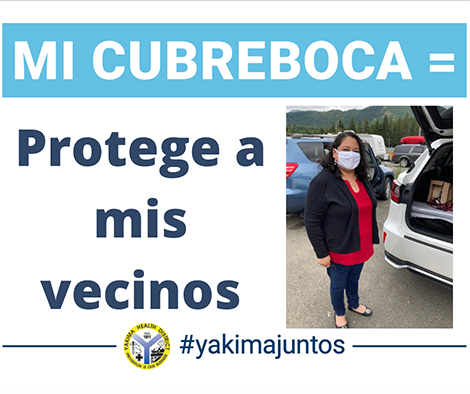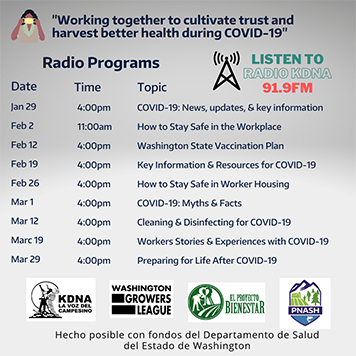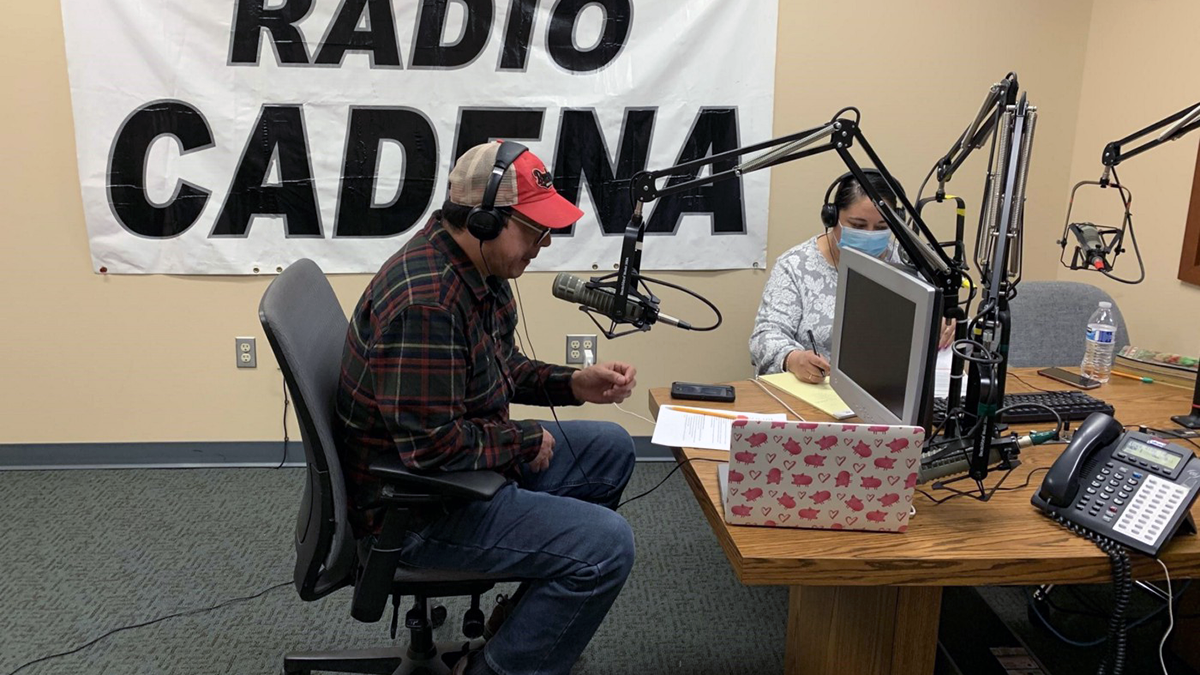For many farmworkers across Washington state, the risks of working on the front lines during the pandemic have been compounded by an “infodemic.”

“During the pandemic, it can be challenging to get people timely and trusted information, especially farmworkers,” said Elizabeth Torres, research coordinator for the Northwest Communities Education Center and Radio KDNA, a public Spanish-language radio station in Washington’s Yakima Valley. Language, cultural and technology barriers between the farmworker community and public health experts can all contribute to the problem.
But the state’s farmworkers tune in regularly to KDNA, so Torres and the station recently launched a Spanish radio campaign about COVID-19 after reaching out to the Pacific Northwest Agricultural Safety and Health (PNASH) Center in the UW Department of Environmental & Occupational Health Sciences (DEOHS) for support developing key messages.
The project is funded by the Washington State Department of Health and was developed in partnership with the community health intervention effort El Proyecto Bienestar, the Washington Growers League and the Washington State Department of Labor & Industries (L&I) and Department of Health.
The campaign hopes to reach farmworkers with accurate, accessible health and safety information—particularly temporary agricultural workers and those who live and work in isolated rural areas and farms.
Separating COVID-19 myths from facts
Running weekly through the end of March, the one-hour programs share COVID-19 vaccine plans, state resources, farmworkers’ stories and more. Upcoming topics include how to stay safe in worker housing and how to separate myths from facts when it comes to COVID-19 and vaccination.
“There is a lot of confusion about how and where to get the vaccine and if it is safe to do so,” Torres said. The PNASH Center’s outreach team, including Outreach and Education Specialist Dennise Drury, Research Coordinator Idanis Cruz and Diana Marquez, a UW environmental health major, are working with Torres and the other campaign partners to develop health and safety messages and participate as radio show guest speakers.
These expert testimonials are accompanied by daily one-minute messages about COVID-19 related to safety orders, workplace requirements and testing and vaccine information.
Busting the infodemic

The radio campaign is part of a broader outreach effort to Washington farmworkers by the team. It is also developing a “fotonovela” to provide culturally tailored COVID-19 information and distributing materials, masks and hand sanitizer. In partnership with the Washington Growers League, the team is distributing resources and protective equipment to 3,000 workers.
“Our goal is to provide support and hope so people continue working together to end this pandemic," Torres said.
To listen to the new radio project, tune into 91.9 FM or visit KDNA and select the Listen tab.
Last year, the PNASH outreach team and partners developed a series of multimedia communications materials—including social media posts, radio spots and flyers—on COVID-19 safety in English and Spanish. The work was done in collaboration with the L&I Multicultural Safety and Health Outreach Program, the Department of Health and colleagues at El Proyecto Bienestar, with funding from the UW Population Health Initiative.




